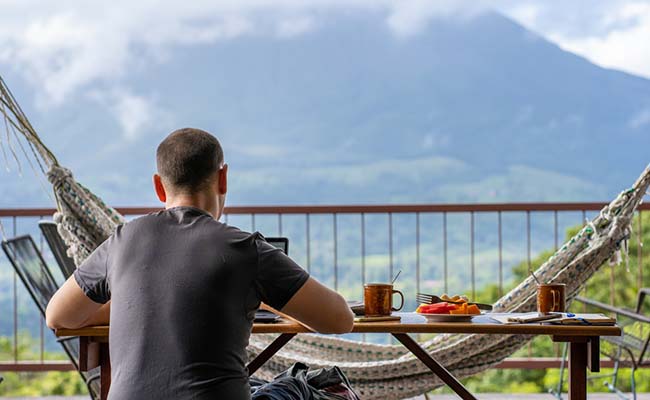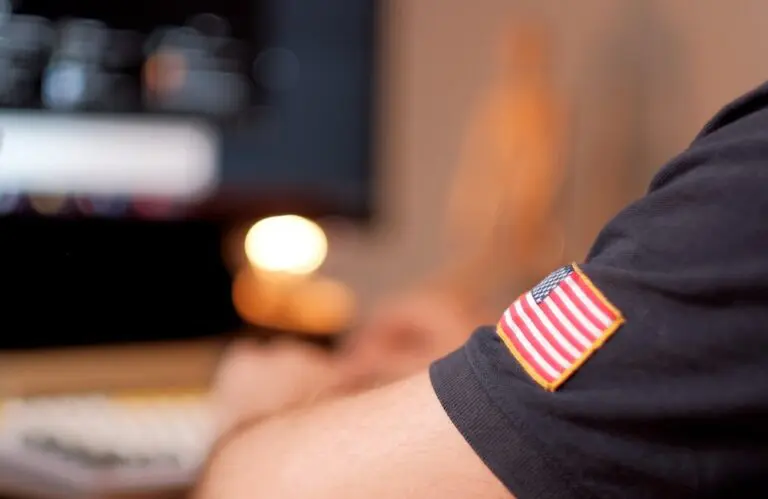With dedicated visas now allowing people to work overseas, digital nomads are opting for a more eco-conscious lifestyle, taking fewer flights and choosing co-living and co-working options to offset the impact of travel, according to recent polls.
The typical profile of a digital nomad is also shifting, as island-hopping 20-somethings are joined by online workers in their 30s and 40s travelling with partners and children, experts and researchers say.
So-called ‘slomads’ are choosing to spend longer in one location – some to enjoy a richer cultural experience while others are driven by the desire to be more eco-conscious.

A Lonely Planet and Fiverr poll showed one-third of digital nomads move every one to three months, while 55 per cent enjoyed working in one location and moving after three months or more.
Remote and flexible working has boomed since coronavirus lockdowns lifted globally and tourist hotspots have been quick to embrace digital nomads in a bid to recoup losses from the pandemic.
Nations such as Aruba, Barbados, Cape Verde, Croatia, Estonia, Indonesia, Malta and Norway have created digital nomad visas, allowing people to stay and work for up to two years.
While data is scarce on the carbon footprint of digital nomads, ‘slomads’ strive to fly less, stay in sustainable accommodation, and invest or contribute to green projects.
However, climate campaigners say the social phenomenon still depends on air travel, which produces up to 3 per cent of global greenhouse gas emissions, and carbon offsetting schemes do not provide measurable emissions reductions.
Via AAP






